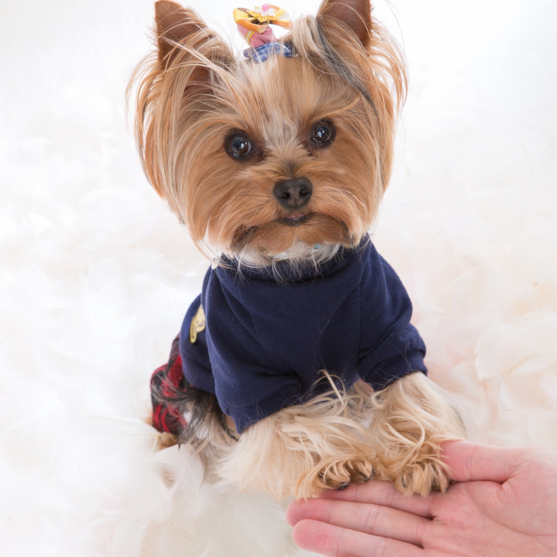Yorkie Breed Information


The Yorkshire Terrier, widely referred to as the "Yorkie", is a small but spirited breed with a rich history in Yorkshire, England. They are prized for their luxurious, silky coats and friendly, loving natures. They are highly intelligent, making them excellent pets for families or individuals. Despite their tiny stature, they are big on personality and have been known to act as effective watchdogs. Regular grooming is required to maintain their luscious coats, but they are generally low-maintenance pets. These dogs are highly adaptable and can thrive in both apartment and larger home settings with proper training.
Characteristics
- They are small in size, weighing only 4 to 6 pounds and standing 8 to 9 inches at the shoulder
- Their coat is long, and silky, and comes in a variety of colors. Their beautiful coats make them stand out from other breeds and make them an eye-catching sight wherever they go
- The Yorkie is an ideal choice for pet owners who have allergies or are looking for a low-shedding, hypoallergenic dog
- Yorkies are known for their lively and affectionate nature, making them perfect pets for families and singles
- They are smart and respond well to training, but can also be quite stubborn at times
- They are highly devoted and make excellent watchdogs, even though they are small
- Grooming is a must for the Yorkshire Terrier, as their long hair needs to be taken care of regularly
- They are versatile and can be trained to live in apartments and big homes, as long as they get enough exercise and stimulation
- Not only do they have a beautiful coat and friendly personalities, but they also have a long lifespan with an average age of 16 to 18 years

Appearance
The appearance of the Yorkshire Terrier is one that is both unique and charming. With their luxurious, silky coats in shades of steel blue and tan, accented with black hairs, they are sure to turn heads.
Their heads are small and round and feature a black nose and large, dark eyes. Their bodies are muscular, yet compact, and their short legs give them a slightly stocky look. Although they may only weigh up to 6 pounds, they carry themselves with a lot of confidence.
This breed is well-known for its long hair, which is often styled in a fashionable manner but can also be kept traditional. Overall, the appearance of the Yorkshire Terrier is one that is both eye-catching and adorable.
Temperament
The Yorkie, as they are commonly known, boasts a playful and friendly temperament. Their high levels of intelligence allow them to quickly learn new commands and tricks, making them a fun pet to have around.
Yorkies are known to form strong bonds with their owners, displaying unwavering loyalty and a desire to please. They are energetic, confident, and adventurous, making them great playmates for both adults and children.
They are also protective of their owners, despite their small size, and can act as effective watchdogs. Yorkies generally get along well with other pets and are sociable, making them a great addition to any household.
Care
Grooming
The Yorkshire Terrier boasts a luxurious, silky coat that is its defining feature, and it requires a little extra TLC to keep it looking its best. Regular grooming is essential to maintain their coat's health, shine, and sleekness.
Brushing their hair twice a week is a must and treating it to a spa day with a monthly bath is highly recommended. With a little effort, you can keep your Yorkie's coat beautiful and soft, making it the center of attention everywhere you go.
It's also important to be diligent about trimming the hair, especially between the pads of the paws, the ears, and around the eyes to prevent matting. The Yorkie's hair can also grow too long and become a problem, so regular haircuts every 4-6 weeks can help keep the coat manageable. The Yorkie's ears are particularly prone to matting and should be trimmed regularly to keep them clean and healthy.
To maintain good oral health and prevent gum disease, brushing your Yorkie's teeth regularly is essential. In addition, you should also keep an eye on tear stains, especially if your Yorkie is light-colored. Keeping the eyes clean and free of hair can help prevent irritation and discomfort.
Professional grooming can be a little much sometimes, but it can also be beneficial for your Yorkie's health, especially if you're unable to groom it yourself. Regular visits to a veterinarian are also important to monitor their overall health, address any potential issues and keep it in top condition.
With proper grooming and care, your Yorkie can maintain his beautiful appearance and be a loyal and affectionate companion for many years to come.
Exercise Needs
The Yorkie has a moderate requirement for physical activity, making them an ideal companion for people with varying lifestyles. They enjoy engaging in playful activities like walks, training, and playing with toys.
Although they do not need extensive physical exertion, they do require a moderate level of mental stimulation, which can be met through interactive games and training sessions. Regular physical activity will not only keep them in good physical health but also prevent boredom and destructive behaviors.
Health
The Yorkie is generally a healthy breed, but it's important to be aware of certain health issues that may arise. For instance, they may suffer from a condition called luxating patella, which is when the knee joint dislocates. Legg-Calve-Perthes disease, another health concern, affects their hips. Due to their small mouths, they may also develop dental problems, so regular tooth cleaning and providing chew toys is crucial. Additionally, they may have sensitive skin and suffer from allergies, so it's important to keep a watchful eye on their reactions to food and grooming products.
Lifespan
With an average lifespan of over a decade, between 16 and 18 years old, the Yorkshire Terrier is a long-lived breed. They have a reputation for being hardy and robust, making them a great pet for people looking for a long-term commitment. However, like all dogs, they are susceptible to certain health issues. To keep your Yorkie in tip-top shape, make sure to give them proper veterinary care, nutrition, and exercise. It is not uncommon for Yorkies to live into their late teens, so be prepared to give your furry companion plenty of love and care over the years.
Training
Training a Yorkshire Terrier can be a fun and rewarding experience, but it requires patience and consistency. It is important to start training early to establish good habits and build a positive relationship with your dog. Yorkies are intelligent dogs, so they respond well to positive reinforcement techniques such as treats and praise.
One important aspect of training is house training. Potty training a Yorkie can take a bit of time, but with patience and consistency, it can be achieved. A good rule of thumb is to take the dog outside every two hours and after every meal. When your Yorkie does go potty outside, be sure to praise them and give them a treat. If your dog has accidents in the house, avoid scolding or punishing them as it can have a negative impact on their training.
Another important aspect of training is obedience training. Yorkies are known to be independent and may exhibit a bit of a stubborn streak. It is important to be firm, yet fair and consistent in your training methods. This breed is highly food-motivated, so using treats as a reward for good behavior can be effective. Training classes are a great way to bond with your dog and help them to socialize with other dogs and people.
It is also important to train your dog to accept grooming, as regular grooming is necessary to maintain their long silky coats. Start with simple grooming procedures such as brushing and bathing, and gradually progress to more complex procedures such as trimming and clipping.
In conclusion, training a Yorkshire Terrier requires patience, consistency, and positive reinforcement techniques. With these techniques, you can build a strong bond with your Yorkie and create a well-behaved and obedient companion.
History
The Yorkshire Terrier, also known as the "Yorkie," is a small and playful breed of dog that has a long and interesting history. Originally from Yorkshire, England, the breed was created in the 19th century to catch and control the rat population in cloth mills and mines.
The Yorkie was created by crossing various terrier breeds, such as the Skye Terrier, and the Waterside Terrier. The result was a small, spunky, and fearless dog with a long, silky coat. The breed quickly gained popularity among the working class in Yorkshire and soon became a beloved companion dog in the UK and across the world.
In the late 1800s, the first Yorkshire Terriers were brought to America and quickly became popular among the wealthy. They were often kept as lap dogs and show dogs, and were prized for their long, silky coat and friendly, affectionate personality.
Over the years, the breed has evolved and become a popular choice for families as a pet. Whether you are looking for a loyal companion, a show dog, or simply a cute and cuddly pet, the Yorkshire Terrier is a breed that is sure to win your heart.

